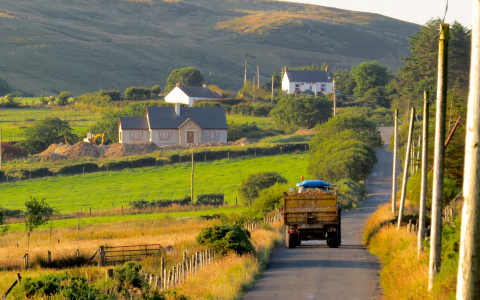Once upon a time in a heatwave explores storytelling as a means to communicate impacts of and adaptations to a changing climate in Northern Ireland, with a particular focus on agricultural and rural communities.
Background
Once upon a time there was a place called Northern Ireland. Not too big or too small, it was just right as a test bed for exploring the power of stories for communicating climate science. Storytelling can connect with people on a deep level and can move seamlessly from facts and emotions, through to values and positive examples of previous action. This connection using narrative, particularly to examples of previous action, is important for providing people with a sense of agency – an ability to enact change.
Two stories will be told: first, the impacts of increasing summer heat on agriculture, and second, the rural take on the shared socio-economic projections (SSPs) of what the future will look like. Stories will be co-produced with a range of audiences, including decision makers, stakeholders and wider public in agricultural and rural communities, with ongoing evaluation throughout the project to assess qualitatively and quantitatively which methods are most effective.
Partnership
Dr Alan Kennedy–Asser from the University of Bristol will embed 55% of his time with Climate Northern Ireland, an intersectoral network devoted to increasing understanding of climate change impacts and risks within Northern Ireland with a particular focus on adaptation. Alan is a climate scientist focussing on UK heat extremes, but with an interest in interdisciplinary research methods, including the use of arts and story in research. In the remainder of his time Alan is a researcher on the OpenCLIM project.
Outputs
Key outputs from the project will include a long-read style ArcGIS StoryMap about the impacts of future heat on agriculture; rural community storytelling workshops to tell new perspective on SSPs; interactive infographics for key stakeholders in the agricultural industry; and an evaluation report of effective storytelling methods for Climate Northern Ireland. It is hoped that these products will raise awareness of adaptation potential for rural communities and initiate a two-way dialogue between research institutions and communities.

